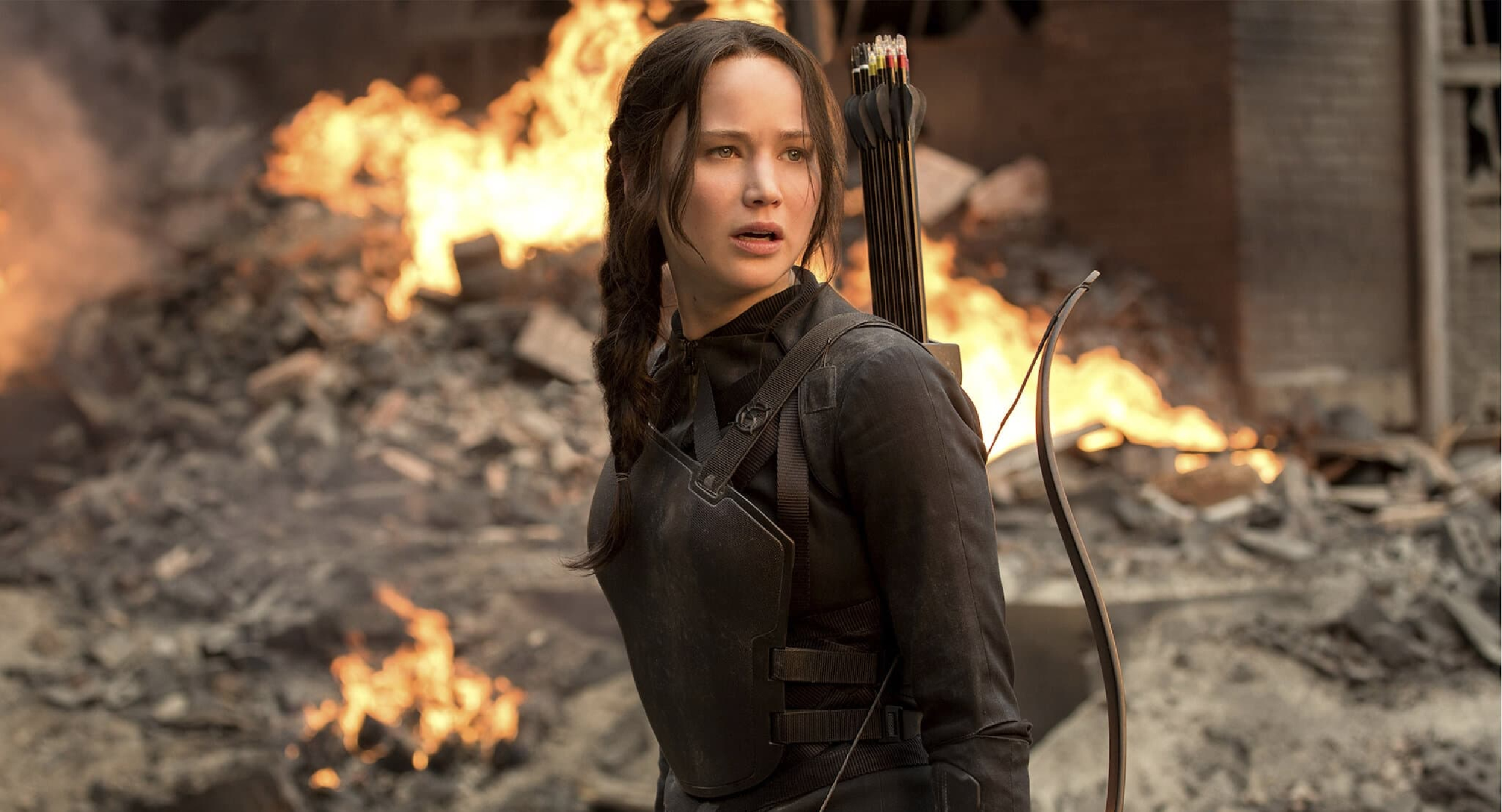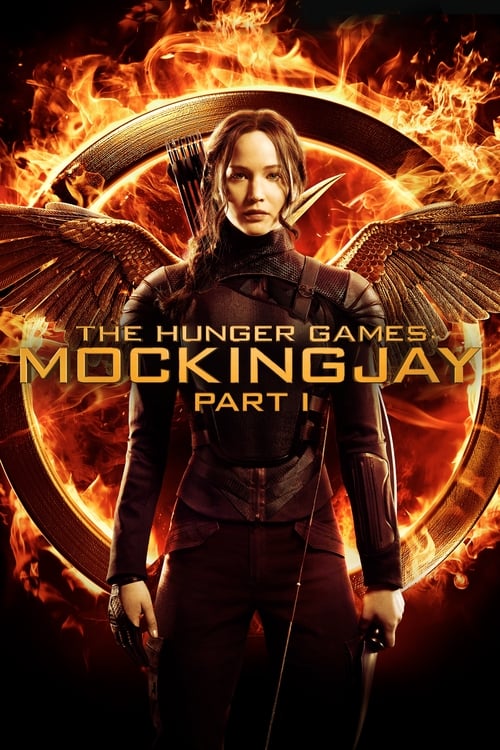The Hunger Games: Mockingjay – Part 1 – Film Review
Published November 15, 2023

The Hunger Games: Mockingjay – Part 1 is a riveting continuation of the dystopian saga that captivates audiences with its enthralling narrative, compelling characters, and thought-provoking themes. Directed by Francis Lawrence and based on Suzanne Collins‘ novel, this installment flawlessly sets the stage for the epic conclusion while exploring the psychological and emotional turmoil of a society at war.
The film picks up where its predecessor left off, thrusting viewers deeper into the turmoil of Panem’s districts. The narrative centers on Katniss Everdeen, portrayed masterfully by Jennifer Lawrence, who finds herself in the heart of a brewing revolution after shattering the games’ Quarter Quell and being rescued by the rebels of District 13. As the face of the rebellion, Katniss navigates her role as the Mockingjay, a symbol of hope and defiance against the oppressive Capitol.
Jennifer Lawrence’s portrayal of Katniss is nothing short of exceptional. Her ability to convey a myriad of emotions, from vulnerability to resilience, anchors the film. Lawrence skillfully portrays the character’s inner conflict, torn between her personal anguish and the weight of being a beacon of hope for a nation in turmoil. Her performance is the heartbeat of the film, driving the audience’s empathy and engagement throughout.
The ensemble cast delivers outstanding performances, with particular commendation to Josh Hutcherson as Peeta Mellark and Philip Seymour Hoffman as Plutarch Heavensbee. Hutcherson’s portrayal of Peeta, captured and manipulated by the Capitol, showcases the character’s internal struggle and adds layers of complexity to the storyline. Hoffman, in one of his final roles, brings depth and gravitas to Plutarch, the mastermind behind the rebellion’s media strategy.
The film’s strength lies in its exploration of themes such as propaganda, power, and the cost of war. The juxtaposition of the Capitol’s slick, manipulative propaganda and District 13’s raw, unfiltered broadcasts creates a stark commentary on media manipulation and the importance of controlling narratives in times of conflict. The moral ambiguity surrounding the rebel cause adds layers of complexity, questioning the righteousness of their actions amidst the chaos of war.
Visually, Mockingjay – Part 1 maintains the series’ high production standards. The desolate landscapes of the districts, the dark confines of District 13’s underground bunkers, and the opulent decadence of the Capitol are brought to life with meticulous detail. The cinematography effectively captures the grim atmosphere of a nation in turmoil, enhancing the narrative’s intensity.
However, the film does suffer from pacing issues, a common pitfall of adaptations that split a single narrative into multiple parts. At times, the story feels stretched, with certain scenes lingering longer than necessary, which might test the patience of some viewers. While the focus on character development is commendable, it occasionally comes at the expense of advancing the central plot.
James Newton Howard‘s haunting score deserves commendation for elevating the film’s emotional resonance. The music seamlessly complements the narrative, underscoring pivotal moments with poignant melodies that tug at the audience’s heartstrings and intensify the emotional impact of key scenes.
The Hunger Games: Mockingjay – Part 1 is a compelling addition to the franchise, successfully setting the stage for the climactic finale while delving deeper into the psychological and emotional toll of revolution. With powerhouse performances, resonant themes, and striking visuals, the film is a must-watch for fans of the series and those intrigued by dystopian narratives. Despite its pacing drawbacks, the movie excels in delivering a thought-provoking and engaging cinematic experience.
